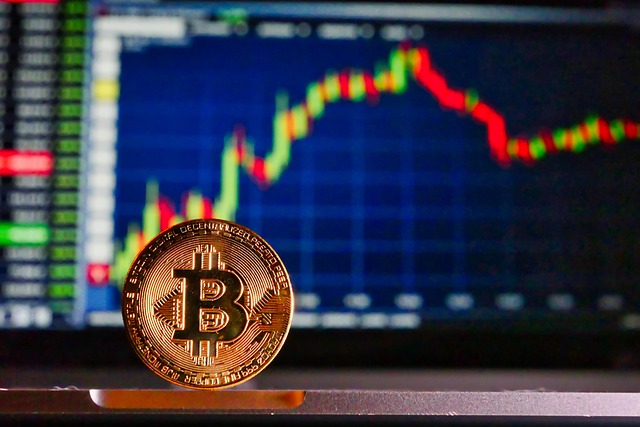New York bill proposes blockchain study for election record security
Blockchain may soon earn itself a role in New York State’s voting processes and procedures.New York Assemblymember Clyde Vanel introduced Bill A07716 on April 8, directing the state Board of Elections to evaluate how blockchain could help protect voter records and election results. The legislation is currently under consideration by the Assembly Election Law Committee.According to the bill’s summary, the goal is to “study and evaluate the use of blockchain technology to protect voter records and election results.“The bill mandates that the Board of Elections produce a report within one year assessing the potential benefits of blockchain in securing election data. The study must include input from experts in blockchain, cybersecurity, voter fraud and election recordkeeping.Bill text. Source: New York State AssemblyRelated: Ripple announces money transmitter licenses in Texas and New YorkBlockchain applications in electionsThis is not the first initiative that attempts to bring the tamper-proof features of blockchain technology to the voting process. In early March, the Bitcoin network was used to secure and store the results of the Williamson County, Tennessee Republican Party Convention’s March 4 election to determine the leadership and board of the local party chapter.About a year ago, Brian Rose — an independent mayoral candidate in London — told Cointelegraph that blockchain-based voting systems could foster more transparency and public trust in the election process:“Wouldn’t we all sleep better at night if the voting system was on the blockchain and you could really prove that identity and you could actually prove that vote and there would be an immutable record? This is the future and I think it takes someone like me who comes from a business background who’s intimately involved in the blockchain.”Still, experts caution that blockchain systems are only as reliable as the data input into them — a concept often summarized as “garbage in, garbage out.” While blockchain offers tamper-resistant storage, it does not guarantee the integrity of the original data submission.Related: Election tally: Does blockchain beat the ballot box?A crypto-conscious assemblymemberVanel is no stranger to blockchain-related initiatives, having introduced a bill that would establish criminal penalties to prevent cryptocurrency fraud and protect investors from rug pulls in early March. In January, he also stated that New York became the first US state to create a cryptocurrency task force to study the regulation, use and definition of digital currency.He has also been a vocal commenter on the industry and its relationship with policymakers for years. In May 2019, Vanel said that the blockchain industry needs to be better at lobbying for itself and educating regulators.Magazine: 3 reasons Ethereum could turn a corner: Kain Warwick, X Hall of Flame
Bitcoin’s safe-haven appeal grows during trade war uncertainty
The global trade war may be a silver lining for Bitcoin’s growing recognition as a safe-haven asset next to gold, thanks to its liquidity and accessibility advantages compared to precious metals.Financial markets have been rattled since US President Donald Trump’s April 2 reciprocal import tariffs announcement, leading to record-breaking sell-offs for traditional stock markets and a Bitcoin (BTC) correction below $75,000.While gold remains the dominant refuge for investors during geopolitical stress, analysts say Bitcoin’s digital nature and 24/7 liquidity are helping it attract renewed interest.“You want to store value in something other than U.S. assets. But you don’t want to own other nations’ currencies/debt/assets because they’re even weaker and you expect they’ll debase it,” said Hunter Horsley, CEO of crypto asset manager Bitwise, in an April 9 post on X.“You look around, and you see it: an asset that can’t be debased, is controlled by no country, and that you can take into your possession immediately. You wind up buying Bitcoin,” Horsely said.Source: Hunter HorsleyDespite the growing optimism, gold will likely remain the dominant asset, especially in the near term, Aurelie Barthere, principal research analyst at Nansen crypto intelligence platform told Cointelegraph, adding:“Bitcoin is promising, but it’s still quite volatile, it could get there gradually. The PBOC has been shedding U.S. Treasury holdings and increasing gold reserves for years. Therefore, I expect this trend to accelerate regardless of the crypto narrative.”Related: 4th gen crypto needs collaborative tokenomics against tech giants — HoskinsonChina’s Finance Ministry on April 9 announced new tariffs of up to 84% on US imports, effective April 10, as a retaliatory measure against Trump’s policy. Analysts believe a resolution could reduce uncertainty and reignite appetite for risk assets like crypto.China’s tariffs come as a retaliatory response to Trump’s tariff plan, which imposed a 34% tariff on Chinese imports, effective April 9.Some industry analysts see Trump’s global tariff negotiations as mere “posturing” for the US to reach an agreement with China, a development that may end global trade uncertainty and see risk assets such as crypto recover.Related: Bitcoin ETFs lose $326M amid ‘evolving’ dynamic with TradFi marketsChina, Russia reportedly using Bitcoin for settlementSome nations are already taking steps toward using crypto assets for settlement in global trade.“China and Russia have reportedly begun settling some energy transactions in Bitcoin and other digital assets,” wrote Matthew Sigel, head of digital assets research at VanEck, in an April 8 note. “These are early signs that Bitcoin is evolving from a speculative asset into a functional monetary tool.”Sigel noted other examples, including Bolivia’s plans to import electricity using crypto and French utility firm EDF’s exploration of using surplus power to mine Bitcoin.“These developments reflect a growing interest in neutral settlement rails, especially among economies looking to bypass the U.S. dollar,” he said.Previous reports also indicated that Russia is using Bitcoin and stablecoin for international oil trade to circumvent global sanctions.Bitcoin’s evolving “volatility profile” also points to BTC “gradually maturing from a risky asset to a safe-have asset,” wrote André Dragosch, macro analyst and European head of research at Bitwise.While the tariff uncertainty will continue limiting risk appetite during the negotiations, positive developments could bring renewed investment into crypto markets.“We’ll start to see the rotation toward the crypto markets in the coming period where there’s more calm and peace in the markets where investors start to buy the dip and understand that some things have been undervalued,” Michaël van de Poppe, founder of MN Consultancy, told Cointelegraph.Magazine: Bitcoin ATH sooner than expected? XRP may drop 40%, and more: Hodler’s Digest, March 23 – 29
Kraken taps Mastercard to launch crypto debit cards in Europe, UK
Cryptocurrency exchange Kraken has partnered with Mastercard to issue crypto debit cards across the United Kingdom and Europe, the company announced on April 8.The partnership will enable the crypto exchange to expand its payment offerings by launching physical crypto debit cards.The partnership comes as Kraken continues to pursue a license under the European Union’s regulatory framework, the Markets in Crypto-Assets Regulation (MiCA).The debit card will allow users to spend cryptocurrencies and stablecoins directly. Kraken said the rollout will begin in the coming weeks, with a waitlist now open to customers.This partnership builds on Kraken Pay’s growthKraken said its partnership with Mastercard builds on the rapid growth of Kraken Pay, a new tool that enables customers to send money from their Kraken account.Launched in January 2025, Kraken Pay allows users to send more than 300 crypto assets to multiple countries worldwide. It also introduces a paylink feature that enables users to send payments through a simple URL.Since launching the service, Kraken has seen more than 200,000 customers out of its 15 million user base activate Kraktag, a unique user identifier allowing owners to receive money without exposing full bank account details.Crypto payments on the rise“Crypto is evolving the payments industry, and we see a future where global commerce and everyday payments are underpinned by crypto,” Kraken co-CEO David Ripley said in a statement shared with Cointelegraph.“Our clients want to be able to seamlessly pay for real-world goods and services with their crypto or stablecoins,” he said, adding:“Partnering with Mastercard is a major step toward us bringing that vision to life. Together, we will unlock crypto’s true everyday utility, ensuring it remains undeniably relevant and usable long-term.”This is a developing story, and further information will be added as it becomes available.Magazine: 3 reasons Ethereum could turn a corner: Kain Warwick, X Hall of Flame
Crypto fintech Taurus launches interbank network for digital assets
Swiss cryptocurrency fintech Taurus has launched an interbank network that is purpose-built for regulated institutions involved in digital asset operations.On April 9, Taurus announced it launched Taurus-Network (TN), an interbank network designed to simplify and improve digital asset transactions between regulated financial institutions worldwide, the firm said in an announcement shared with Cointelegraph.Taurus’ TN aims to improve collateral mobility, optimize settlement speed and reduce counterparty risk while benefiting capital and liquidity management in digital assets.Among the key benefits of the network is the ability for participants to retain full sovereignty over assets, direct interaction with counterparties and automated compliance without third-party intervention, Taurus SA’s head of product infrastructure, Vassili Lavrov, told Cointelegraph.Multiple banks already involvedThe Taurus-Network launches with participation from several banks worldwide, including Arab Bank Switzerland, Capital Union Bank, Flowdesk, ISP Group, Misyon Bank and Swissquote.According to Lavrov, all of those banks have taken meaningful steps to integrate digital asset capabilities within their operations, with most of them already offering custody of cryptocurrencies to their clients.“By building on Taurus’ relationships with over 35 banking clients across four continents, the network is positioned to become the default infrastructure layer for compliant, high-trust digital asset activity,” the exec noted.A blockchain-agnostic networkAs Taurus expects to tap major global regulated financial institutions for its network, the firm ensures that interoperability is among its core strengths.The Taurus-Network is blockchain-agnostic and supports both public and permissioned distributed ledger technologies, Lavrov said, adding:“It’s engineered to enable seamless interaction across different digital asset types, whether cryptocurrencies, tokenized securities, or digital currencies.”He also added that the network is designed to interoperate across public and permissioned blockchains, so institutions “aren’t locked into one system.”This is a developing story, and further information will be added as it becomes available.Magazine: XRP win leaves Ripple and industry with no crypto legal precedent set
Real estate not the best asset for RWA tokenization — Michael Sonnenshein
As more institutions explore blockchain-based finance, some industry leaders say tokenized real-world assets (RWAs) may surpass $30 trillion by the 2030s. Others are casting doubt on that projection.In June 2024, Standard Chartered Bank and Synpulse predicted that RWAs may reach over $30 trillion by 2034. The narrative remained strong in the latter part of 2024, with some analysts expressing similar sentiments. At Paris Blockchain Week 2025, a panel moderated by Cointelegraph’s managing editor, Gareth Jenkinson, brought together executives from across the tokenization ecosystem to discuss the future of RWAs. Participants included Charles Adkins of Hedera, Dotun Rominiyi from the London Stock Exchange, Shy Datika of INX, Steven Gaertner of Tiamonds and Securitize chief operating officer Michael Sonnenshein.While the majority supported the $30 trillion estimate, Sonnenshein expressed skepticism.The Truth Behind Tokenization and RWA panel. Source: Paris Blockchain WeekSecuritize exec predicts a more conservative trajectory for RWAsSonnenshein, a former CEO of Grayscale Investments, said tokenized assets may not reach the $30 trillion mark. He argued that there are many “good systems” in place that already work for traditional assets:“I have to just say, at the moment there obviously are some really good systems in place that allow some of these assets to trade. So, just because it can be tokenized doesn’t mean that it should be. And so, I’ll take the under on the $30 trillion number.”Despite being an outlier in his predictions, Sonnenshein said he’s still bullish on RWAs, adding that his sentiment “doesn’t mean that tokenization isn’t here to stay.” Sonnenshein said that the space will still see a major explosion of investors who will see their wallets as not just a place for crypto speculation but also a “place that actually houses investments of theirs the way their brokerage accounts or investment accounts would as well.”Related: BlackRock’s BUIDL expands to Solana as tokenized money market fund nears $2BTokenization doesn’t “translate well” to representing real estate ownershipSonnenshein also questioned the viability of real estate as a primary use case for RWAs.In the United Arab Emirates, government agencies have made moves to link tokenization with real estate. In January, local real estate developer Damac signed a $1 billion deal with RWA blockchain Mantra to tokenize real estate in the UAE. While some put their money on tokenized real estate, Sonnenshein cast doubt on the idea. “I’ll be the controversial one up here and just say I don’t think tokenization should have its eyes directly set on real estate,” he said during the panel. While the executive recognized the benefits of tokenizing real estate, he argued that this doesn’t translate well to representing ownership. “I’m sure there are all kinds of efficiencies that can be unlocked using blockchain technology to eliminate middlemen and escrow and all kinds of things in real estate. But I think today, what the onchain economy is demanding are more liquid assets,” he added. Magazine: New ‘MemeStrategy’ Bitcoin firm by 9GAG, jailed CEO’s $3.5M bonus: Asia Express
4th gen crypto needs collaborative tokenomics against tech giants — Hoskinson
The next generation of cryptocurrency projects must embrace a more collaborative approach to compete with major centralized tech companies entering the Web3 space, according to Cardano founder Charles Hoskinson.Speaking at Paris Blockchain Week 2025, Hoskinson said one of the main criticisms of the crypto and decentralized finance (DeFi) space is its “circular economy,” which often means that the rally of a specific cryptocurrency is bolstered by funds exiting another token, limiting the growth of the industry.Hoskinsin said that to have a chance against the centralized technology giants joining the Web3 industry, cryptocurrency projects need more collaborative tokenomics and market structure.Charles Hoskinson. Source: Cointelegraph“The problem right now, with the way we’ve done things in the cryptocurrency space, is the tokenomics and the market structure are intrinsically adversarial. It’s sum 0,” said Hoskinson. “Instead of picking a fight, what you have to do is you have to find tokenomics and market structure that allows you to be in a cooperative equilibrium.”He argued that the current environment often sees one crypto project’s growth come at the expense of another rather than contributing to the sector’s overall health. He added that this is not sustainable in the face of trillion-dollar firms like Apple, Google, and Microsoft, which may soon join the Web3 race amid clearer US regulations.“You can’t build a global ecosystem this way, and you can’t win this way,” he said. “Because here’s the thing. The incumbents are much larger.”Related: Bitcoin ETFs lose $326M amid ‘evolving’ dynamic with TradFi marketsHoskinson’s comments came as the industry awaits progress on US stablecoin legislation, which may come in the next two months.A secondary bill, the GENIUS Act — an acronym for Guiding and Establishing National Innovation for US Stablecoins — would establish collateralization guidelines for stablecoin issuers while requiring full compliance with Anti-Money Laundering laws.Related: Cardano’s Plomin hard fork sets stage for full decentralized governanceCrypto faces Big Tech’s regulatory tailwindMore participation from tech giants is likely after the stablecoin bill is passed. The markets structure bill may pass by September, Hoskinson said, adding:“These are the barriers that, once removed, mean that Facebook, Microsoft, Amazon, Google, Apple and others enter the cryptocurrency space and tell me who owns their platforms. They do. That’s three billion users.”“So if those barriers are removed, how do we, as an industry, compete against the wallet that Apple built in bundles with the iPhone,” he said, adding that crypto also needs to build infrastructure that the incoming tech giants can leverage.Aiming to align blockchain network incentives, Cardano has been working on “Minotaur,” a multi-resource consensus protocol that combines multiple consensus mechanisms and networks to pay a unified block reward to multiple networks at the same time.“You pay in the currency you want, and multiple networks are involved in securing the system and have a financial incentive to keep the system around,” Hoskinson said.Magazine: Charles Hoskinson, Cardano and Ethereum – for the record
Thailand targets foreign crypto P2P services in new anti-crime laws
Thailand is beefing up measures to combat online crimes involving digital assets by passing new amendments to several national laws.Thailand’s cabinet on April 8 passed a resolution approving amendments to emergency decrees on digital asset businesses and on measures for cybercrime prevention, the Thai Securities and Exchange Commission (SEC) announced.As part of the new laws, Thai regulators aim to strengthen measures for combating digital asset mule accounts in banks, restrict foreign cryptocurrency peer-to-peer (P2P) platforms and introduce strict financial penalties of as much as $8,700 and imprisonment of up to three years.The new laws are expected to be enforced in the near future, and will take effect after being published in the Royal Thai Government Gazette, the announcement stated.Key measures to combat mule accounts and money launderingThe new regulations include stringent measures for crypto asset service providers (CASPs), requiring them to collect and report information on transactions linked to online scams and suspend them.The amendments also empower Thai authorities to block foreign CASPs from providing services to local users, further tightening controls against money laundering activities.Related: Zhao pledges BNB for Thailand, Myanmar disaster reliefThe new laws also have significant implications for non-crypto businesses in Thailand, imposing additional joint responsibilities on commercial banks, telecom providers and social media service providers. The SEC stated:“Requiring commercial banks, telephone and telecommunications network providers, social media service providers and digital asset business operators to take joint responsibilities for damages caused by cybercrimes if they fail to comply with the standards or measures for preventing cybercrimes as specified by regulatory authorities.”Restrictions for foreign crypto P2P services The new laws explicitly aim to “deter and prevent” foreign crypto P2P service providers, which are “qualified as digital asset exchanges under the Digital Asset Business Law,” according to the SEC.Additionally, the laws intended to restrict other types of foreign CASPs from providing services to investors in Thailand, the announcement said.Source: ChartNerdThailand’s latest regulatory developments apparently aim to restrict crypto P2P transactions to only local P2P providers in an effort to avoid additional risks potentially stemming from foreign CASPs.Cointelegraph approached the Thai SEC and crypto exchange Binance for comments regarding the restrictions but did not receive a response by the time of publication.Meanwhile, local regulators have expressed interest in growing cryptocurrency adoption by approving crypto payment trials in certain cities like Phuket and considering approvals of crypto exchange-traded funds.Magazine: New ‘MemeStrategy’ Bitcoin firm by 9GAG, jailed CEO’s $3.5M bonus: Asia Express
US gov’t actions give clue about upcoming crypto regulation
The early days of the Trump administration saw a flurry of activity that could give the crypto industry an idea of forthcoming crypto regulations, namely that they may not be regulated as securities. Practitioners have decried a lack of concrete change in the form of new rules and guidance. The skeptics have their reasons. The formation of the crypto task force, Trump’s crypto executive order, crypto czar David Sacks’ lone press conference, and the digital asset reserve has been criticized as mere theater.The real work of regulating comes not in press conferences but in the guidance, enforcement, and rulemaking that support the structure of rules-based systems.A faithful account of all of the cryptocurrency decisions from the Trump administration reveals a new approach to enforcement and regulation that could meaningfully affect the rights of operators in the United States. Trump’s regulatory approach opens up banking to cryptoIn the dog days of the Biden administration, a policy known as “Operation Chokepoint 2.0” became a major scandal in certain crypto media channels. The allegations were that, during the Obama administration, the Justice Department developed a program called Operation Choke Point that it used to surveil and curtail certain disfavored businesses like payday lenders and firearms dealers. Some speculated that the Biden administration adopted the same policies for cryptocurrency companies. There was a lot of back and forth over this issue — some denied it ever happened, but many cryptocurrency firms and individuals lost access to banking services.Whether this was a directive or simply an unforeseen consequence of other policies, many in the industry were incensed; the issue became politically charged. Crypto execs went on popular shows and podcasts like The Joe Rogan Experience to discuss debanking. Source: Nic CarterAs a result, one of the first steps the Trump administration took regarding crypto was to fix the industry’s debanking problem. This began only two days after Trump took office with Staff Accounting Bulletin 122 (SAB 122), a directive that repealed the Securities and Exchange Commission’s (SEC) SAB 121 — which had effectively prohibited banks from holding cryptocurrencies by making it difficult and inefficient to do so. On March 7, the Office of the Comptroller of the Currency (OCC) released its own interpretive guidance, Letter 1183, itself undoing Letter 1179. The latter required banks to ask OCC’s permission to participate in certain crypto-native activities like custodying cryptocurrency, holding stablecoin reserve deposits and functioning as validation nodes.On March 28, the Federal Deposit Insurance Corporation (FDIC) followed up with its own guidance. It rescinded the Biden era FIL-16-2022, which required FDIC-supervised institutions to notify the FDIC of their intent to dabble in crypto and provide information on possible risks. Acting FDIC Chair Travis Hill also signaled that “banking regulators should not use reputational risk as a basis for supervisory criticisms” at all.It may be difficult to separate the effects of these policies so early in the administration because banks are large institutions and move slowly. But across three agencies the rules have changed substantially and dramatically, which could have major effects on cryptocurrency access to banking services in the medium to long term. Fully dismissed crypto cases Virtually every pending SEC matter with a cryptocurrency defendant has been dropped. While nice for the targets, it doesn’t create much precedent that anyone can build off of. That said, the result does suggest that the underlying activities in those dropped cases won’t be pursued for enforcement, at least for the immediate future.Related: Ripple celebrates SEC’s dropped appeal, but crypto rules still not setIt’s helpful, then, to consider what activities have received implied license through this campaign of dropped enforcement.There are a number of cases in which the SEC filed a complaint and litigated to varying degrees of resolution, which the commission either fully dropped or settled without admissions of wrongdoing on the part of the targets:Feb. 27, 2025 — Coinbase Inc. March 3, 2025 — Payward, Inc. (Kraken)March 25, 2025 — Ripple Labs, Inc.March 27, 2025 — Cumberland DRW LLC March 27, 2025 — Consensys Software, Inc.These cases revolved around the unregistered sale and offer of securities under the Securities Act of 1933, and acting unregistered as a broker, dealer, clearing agency and exchange. While the allegations and actors are different, the common thread between them is that none would be subject to the laws in question if the underlying assets were not themselves securities.The sole exception is Consensys, which was accused of providing staking as a service without first registering it as a security. While the texture of this claim is familiar, the activity is somewhat different than the pure offer and sale of securities. This dismissal, along with the related guidance concerning mining pools, suggests that the current SEC does not consider most token-generating activities to be investment contracts, either. Crypto firms were quick to celebrate after the SEC dropped cases against them. Source: Bill HughesStayed pending resolutionOther cases have been filed in court and halted through joint motions to pause the suits. This is presumably in anticipation of eventually dismissing them, but since they have not yet been dismissed, it is hard to say for sure. Feb. 11, 2025 — Binance and Changpeng Zhao (CZ)Feb. 25, 2025 — Tron Foundation and Justin SunApril 2, 2025 — Gemini Trust Company, LLC These cases mostly differ from the ones that have already been dropped in that, in the case of Binance and Tron, the government brought allegations not just of unregistered operation but of actual fraud as well. The pause indicates the government may be conciliatory, but the aggravating nature of these allegations is stalling resolution. Gemini fits more naturally into the category above, and it is not clear why that case has not yet been dropped.SEC drops investigations into crypto firms There are other cases where the SEC opened investigations and even issued Wells notices indicating potential enforcement. However, the commission has reportedly ceased investigations after Trump’s inauguration. Feb. 21, 2025 — Robinhood Crypto, LLCFeb. 21, 2025 — Ozone Networks, Inc. (OpenSea)Feb. 25, 2025 — Universal Navigation Inc. (Uniswap Labs)March 3, 2025 — Yuga LabsThe investigations were focused around allegations that non-fungible tokens (NFTs) were securities, or that intermediaries like Robinhood or Uniswap were operating as unregistered brokers. While little has come of these actions, on balance they match the trend suggested above.What the dismissals say quietlyNone of the dismissals could be considered an SEC edict that certain crypto activities are legal. But taken together, these dismissals, pauses and dropped investigations paint a clear picture of how the current SEC thinks about cryptocurrency’s place in securities regimes. The SEC dropped charges where allegations revolved around operating as a broker, dealer, clearing house or exchange. This is consistent with the position that the underlying assets themselves are not securities. The same is true about cases of issuance. The commission dropped charges alleging that an entity issued securities in the form of cryptocurrency tokens.Still, claims of fraud and market manipulation have not yet been dropped. This might indicate a reticence among commission attorneys to let these claims go. Still, if the assets at hand are not securities, the SEC will not be the correct agency to bring those claims, and so, if the SEC is consistent, then it will likely drop these cases too.Furthermore, in three official statements, the SEC notified the public that traditional memecoins, proof-of-work mining, including pooled mining, and traditional “covered” or asset-backed stablecoins denominated in dollars are not subject to securities laws.Related: Crypto has a regulatory capture problem in Washington — or does it?This, alongside the chain of dismissals, suggests that secondary market sales of fungible cryptocurrency tokens, NFTs, and staking-as-a-service products are also outside of the scope of traditional securities law. Some might argue that this is more confusing than clarifying, but applying the principle of Occam’s Razor would suggest the SEC simply does not consider cryptocurrency assets to be subject to securities laws as currently construed.But what does it all mean?“Flood the Zone” is a tactic that Trump strategist Steve Bannon made famous during the president’s first term, and it might now apply to the manic flurry of policy and dismissals over the past few months. Take any one at face value and it would be easy to discount the project as insubstantial, but together they arguably represent a sea change in the crypto policy of the United States government. Banks, once effectively prohibited from holding cryptocurrencies, are now unrestrained. Companies once bogged down in litigation are now free. They may well be followed by new entrants comforted by their survival. At a biweekly clip, the SEC is releasing new guidance as to which products exist outside its remit. And Trump nominee Paul Atkins isn’t even in the door yet. This is a dramatically improved regulatory environment, and there are now affirmatively legal paths through which industry participants can do business onchain. Magazine: 3 reasons Ethereum could turn a corner: Kain Warwick, X Hall of Flame








